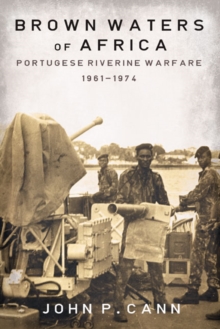
Abolishing the Taboo : Dwight D. Eisenhower and American Nuclear Doctrine, 1945-1961 Hardback
by Brian Madison Jones
Part of the Helion Studies in Military History series
Hardback
Description
In Abolishing the Taboo, Brian Madison Jones takes a new look at the integral role played by Dwight D.
Eisenhower in the creation of a new nuclear creed for the United States during the Cold War.
The author centers the narrative on Eisenhower, the man, the general, and the president, with specific focus on his intellectual and political understanding of nuclear technology in general and nuclear weapons in particular.
Abolishing the Taboo presents an analysis of Eisenhower's thinking about nuclear weapons since 1945 as well as a survey of nuclear developments from 1953-1961.
With heavy reliance upon archival research at the Eisenhower Presidential Library in Abilene, Kansas as well as published works by Eisenhower and his confidants, Abolishing the Taboo evidences how Dwight D.
Eisenhower came to believe that nuclear weapons and nuclear technology were permissible and desirable assets to help protect U.S. national security against the threat of international communism.
Through an analysis of Eisenhower's words and actions, Jones shows how and why Eisenhower sought to make nuclear weapons as available, useful, and ordinary for purposes of national security as other revolutionary military technology from the past, such as the tank. The president conceived policies such as the New Look, massive retaliation, Project Plowshare, and Atoms for Peace in part to convince the American public and the international community of the U.S.'s genuine desire for peace as Eisenhower simultaneously entrenched atomic and thermonuclear weapons into the American national conscience, according to the author.
Jones concludes that Eisenhower, more than any other single figure, expanded the role played by nuclear technology in American life and became the primary architect of the new American nuclear creed that made nuclear weapons and nuclear technology ordinary, abundant, and indispensable to U.S. national security in the postwar period.
Information
-
Only a few left - usually despatched within 24 hours
- Format:Hardback
- Pages:176 pages, 15 b/w photos
- Publisher:Helion & Company
- Publication Date:15/02/2013
- Category:
- ISBN:9781909384057
Other Formats
- Paperback / softback from £20.49
£49.95
£34.15
Information
-
Only a few left - usually despatched within 24 hours
- Format:Hardback
- Pages:176 pages, 15 b/w photos
- Publisher:Helion & Company
- Publication Date:15/02/2013
- Category:
- ISBN:9781909384057










